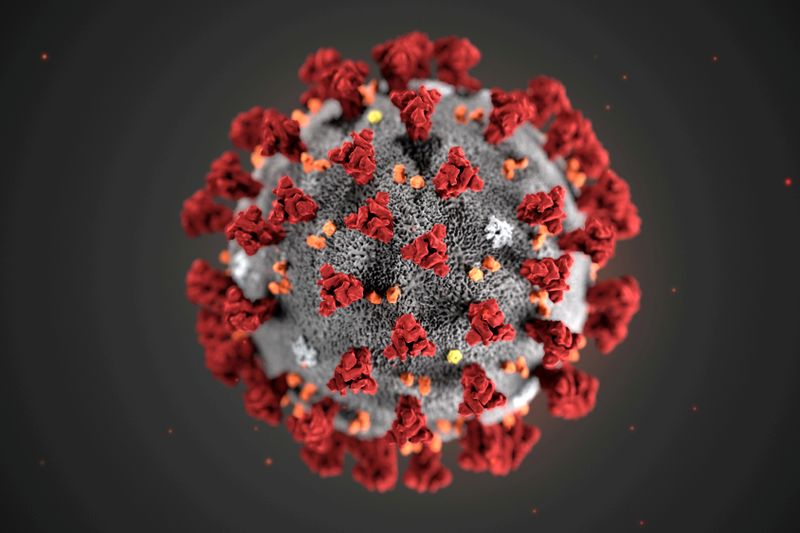By Julie Steenhuysen
CHICAGO (Reuters) - A critical component of the immune system known as T cells that respond to fight infection from the original version of the novel coronavirus appear to also protect against three of the most concerning new virus variants, according to a U.S. laboratory study released on Tuesday.
Several recent studies have shown that certain variants of the novel coronavirus can undermine immune protection from antibodies and vaccines.
But antibodies - which block the coronavirus from attaching to human cells - may not tell the whole story, according to the study by researchers at the National Institute of Allergy and Infectious Diseases (NIAID). T cells appear to play an important additionally protective role.
"Our data, as well as the results from other groups, shows that the T cell response to COVID-19 in individuals infected with the initial viral variants appears to fully recognize the major new variants identified in the UK, South Africa and Brazil," said Andrew Redd of the NIAID and Johns Hopkins University School of Medicine who led the study.
The researchers analyzed blood from 30 people who had recovered from COVID-19 before the emergence of the new more contagious variants.
From those samples, they identified a specific form of T cell that was active against the virus, and looked to see how these T cells fared against the concerning variants from South Africa, the UK and Brazil.
They found the T-cell responses remained largely intact and could recognize virtually all mutations in the variants studied.
The findings add to a prior study that also suggested T cell protection appears to remain intact against the variants.
The NIAID researchers said larger studies are needed to confirm the findings. Continued monitoring for variants that escape both antibody and T cell protection is needed, Redd said.

The paper has been accepted for publication in Open Forum Infectious Diseases but has yet to be peer reviewed.